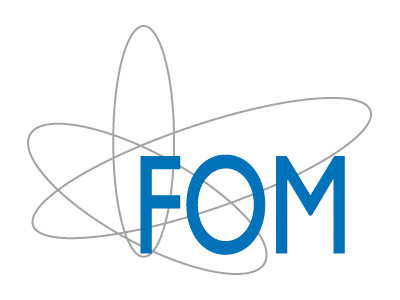Foundation for Fundamental Research on Matter (FOM)

The Foundation for Fundamental Research on Matter (FOM) promotes, co-ordinates and finances fundamental physics research in the Netherlands. It is an autonomous foundation responsible to the physics division of the national research council NWO. Its annual budget is 91,8 million euros.
FOM has two main goals. The first one is to foster physics research of international top level quality in the Netherlands. The second one is to carry out basic physics research together with industry on topics which promise the best chances of gaining economic innovation.
- FOM employs about 1124 people, of whom about 512 are PhD students and 186 are postdocs. They work at FOM research institutes and in university laboratories. The foundation also finances and operates a number of research facilities at and in collaboration with universities.
- More than 50 percent of all Dutch physics professors receive financial support from FOM. About half of all Dutch publications in the field of physics originate from FOM researchers, and more than half of the total annual number of PhD's in physics is awarded to students supported by FOM. The foundation thus plays an important role in directing physics research in the Netherlands and contributes substantially to the strong position of Dutch physics nationally and internationally.
FOM's tasks are dual. FOM is both a research organisation and a funding agency. Therefore, the way FOM operates compares to the Engineering and Physical Sciences Research Council (EPSRC) in Great Britain, the Centre National de la Recherche Scientifique (CNRS) in France, and the Max Planck Gesellschaft (MPG) and Deutsche Forschungsgemeinschaft (DFG) in Germany.
The Foundation for Fundamental Research on Matter (FOM) promotes, co-ordinates and finances fundamental physics research in the Netherlands. It is an autonomous foundation responsible to the physics division of the national research council NWO. Its annual budget is 91,8 million euros.
FOM has two main goals. The first one is to foster physics research of international top level quality in the Netherlands. The second one is to carry out basic physics research together with industry on topics which promise the best chances of gaining economic innovation.
- FOM employs about 1124 people, of whom about 512 are PhD students and 186 are postdocs. They work at FOM research institutes and in university laboratories. The foundation also finances and operates a number of research facilities at and in collaboration with universities.
- More than 50 percent of all Dutch physics professors receive financial support from FOM. About half of all Dutch publications in the field of physics originate from FOM researchers, and more than half of the total annual number of PhD's in physics is awarded to students supported by FOM. The foundation thus plays an important role in directing physics research in the Netherlands and contributes substantially to the strong position of Dutch physics nationally and internationally.
FOM's tasks are dual. FOM is both a research organisation and a funding agency. Therefore, the way FOM operates compares to the Engineering and Physical Sciences Research Council (EPSRC) in Great Britain, the Centre National de la Recherche Scientifique (CNRS) in France, and the Max Planck Gesellschaft (MPG) and Deutsche Forschungsgemeinschaft (DFG) in Germany.